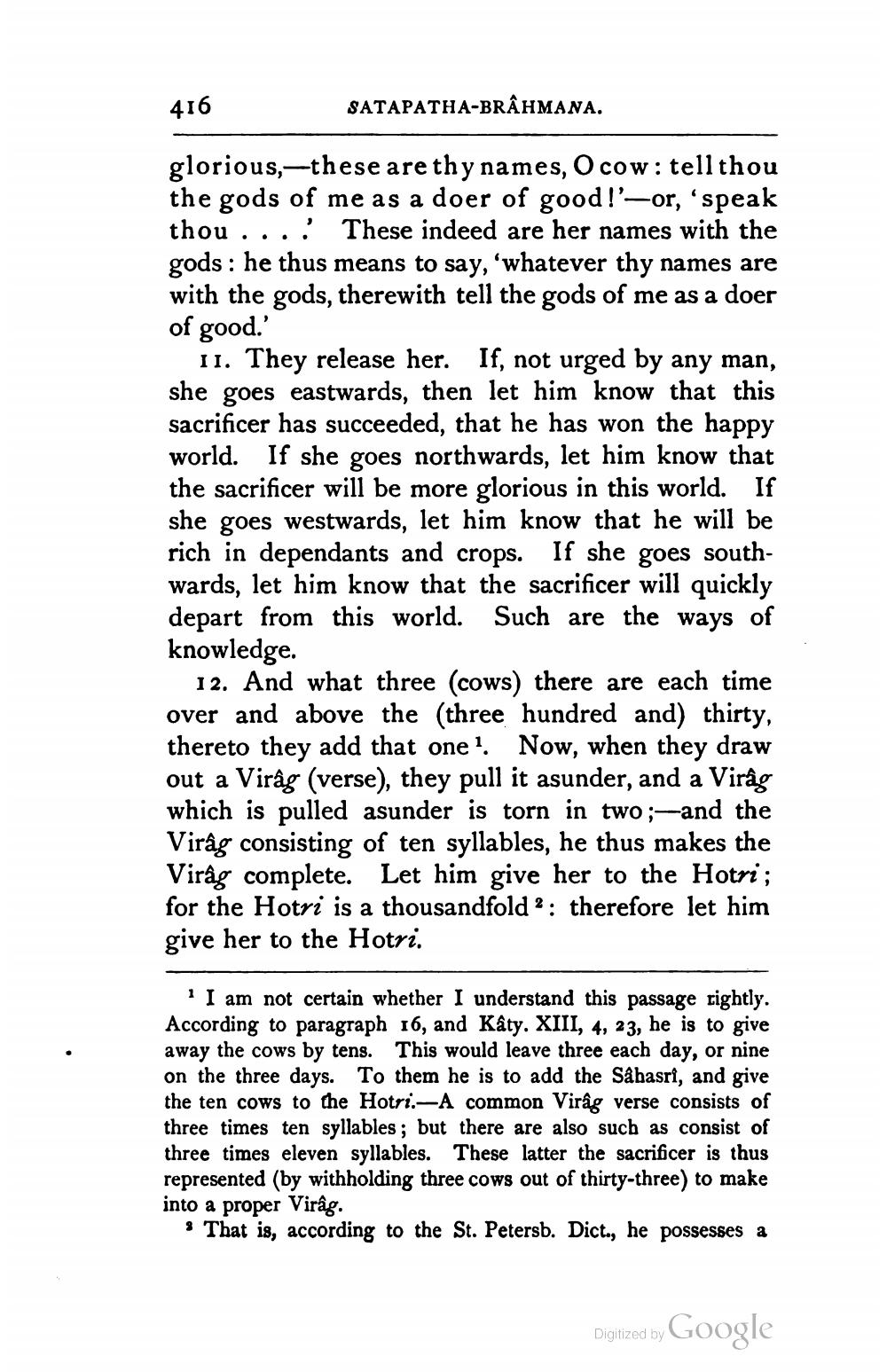________________
416
SATAPATHA-BRAHMANA.
glorious, these are thy names, O cow: tell thou the gods of me as a doer of good!'-or, 'speak thou.... These indeed are her names with the gods: he thus means to say, 'whatever thy names are with the gods, therewith tell the gods of me as a doer of good.'
11. They release her. If, not urged by any man, she goes eastwards, then let him know that this sacrificer has succeeded, that he has won the happy world. If she goes northwards, let him know that the sacrificer will be more glorious in this world. If she goes westwards, let him know that he will be rich in dependants and crops. If she goes southwards, let him know that the sacrificer will quickly depart from this world. Such are the ways of knowledge.
12. And what three (cows) there are each time over and above the (three hundred and) thirty, thereto they add that one1. Now, when they draw out a Virág (verse), they pull it asunder, and a Virag which is pulled asunder is torn in two;-and the Virâg consisting of ten syllables, he thus makes the Virág complete. Let him give her to the Hotri; for the Hotri is a thousandfold 2: therefore let him give her to the Hotri.
1 I am not certain whether I understand this passage rightly. According to paragraph 16, and Kâty. XIII, 4, 23, he is to give away the cows by tens. This would leave three each day, or nine on the three days. To them he is to add the Sâhasrî, and give the ten cows to the Hotri.-A common Virâg verse consists of three times ten syllables; but there are also such as consist of three times eleven syllables. These latter the sacrificer is thus represented (by withholding three cows out of thirty-three) to make into a proper Virâg.
That is, according to the St. Petersb. Dict., he possesses a
Digitized by
Google




